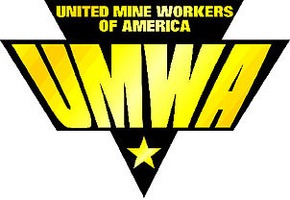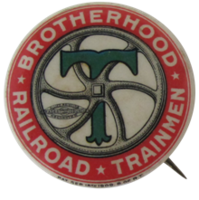General Discussion
Related: Editorials & Other Articles, Issue Forums, Alliance Forums, Region ForumsAnthony Bourdain in WV
I was born and lived in WV until I was 21, so I was interested in seeing what AB would make of WV cuisine and culture. I think he mostly got it right, but I am haunted by a couple of thoughts.
I understand how seductive working in the coal mines was for young men. The pay and benefits were great, and their powerful union did what it could to protect them from hazards. Sen. Robert Byrd worked on their behalf on black lung issues. It was a secure, good living, and it was comfortably familiar to them. They would not have to leave home and family to pursue a career.
By contrast, both of my grandfathers and most of my other male relatives of that generation worked for the C&O Railroad. One grandfather was an engineer, the other a conductor. Like the miners, they were well-paid, did important work to help build the nation, had a strong union, and could live where they grew up.
Instead of encouraging my father's generation--men born in the 20s--to go to work for the railroad (which was booming at least as much as coal mining at the time with no foreshadowing of the death of the industry) my father and all my uncles were sent to college, where they all became professionals--two engineers, one CPA and one journalist. The journalist was my father, who managed to time his death just before the demise of newspapers, but he was the only one of them whose career might have ended in failure of the industry. My mother and aunts were all sent to college, too.
Why the difference? Both miners and railroad men had plenty of money. Even during the Depression, when my grandfathers made less money, they never were without necessities. One of my grandfathers graduated from high school; his wife graduated from business college. The other grandfather, who sent five children to college, left school at age 12 to work as a lumberjack, and his wife was taken out of school in second grade to work in her step-mother's boarding house. So there wasn't a history of higher education.
My great-aunt Rose had married a miner, and we often visited her in Minden, a typical company town. Her house was fine--as a child, I wasn't aware of much about home decor--and the only big difference I knew about was that the only water came from a hand pump in the kitchen sink. Water was piped in during the 1960s. My great-aunt refused to have a toilet installed in her house because she felt that was "filthy." Visiting her outhouse was terrifying to a little kid, and I didn't like the black snot I always had after a trip to Minden.
But my aunt was by that time a widow, so I don't know that her experience was typical.
The other difference I know of between railroad men and miners is that railroaders lived in a town, and miners lived out in the country, near the mines. The hollows, btw, were isolated areas surrounding the town, not where the mining towns were located. I know they had a company store and were sometimes paid in scrip, which was of no value anywhere else, but as time passed, scrip was eliminated. And they had Sears catalogs, like the town-dwellers had.
So why did miners cling to a dying industry when railroaders did not? Why did railroad men know that the future for their children lay in education and training for careers outside of the familiar?
kentuck
(111,079 posts)My Dad was a mule driver in a mine before anything was mechanized.
It was hard and dangerous work, with slate falling around them every day. They were too exhausted to get an education or to look for another job. They had just enough energy to get out of bed and make it to the mines for one more day. They were conditioned to do that every day and it permitted them to survive and feed their children.
marble falls
(57,078 posts)and became chief light and signal engineer for the Nickle Plate Road and then the Norfolk and Western. My great uncle was the Erie Lackawanna yard master in Akron, Ohio and two of my cousins were trackmen until they retired recently.
My other grandfather died from black lung after working the Bethlehem Mines and being disabled by the time he was fifty. Charlie Bronson worked the same mine until he went into the service for WWII.
Thank G*d for the UMW and the late, beloved BRT.


Always look for the union label!
FakeNoose
(32,634 posts)Maybe a good book or master's thesis will come out of it. Thanks for sharing your story!
I'm living in Pittsburgh where I grew up, and we saw something similar here in the late 60's-early 70's. Some of the guys in my high school planned to work in the steel mills because that's where their dads and uncles were working. Seemed like a good job and great job security. Meanwhile other guys went to college either because their parents told them to, or because they wanted the 1-S deferment to avoid the draft.
By the time the Vietnam War ended, steel mills were closing and most of the steel workers were laid off. Guys graduating from college with a fresh degree were having trouble getting hired. There were too many baby boomers out there and everyone wanted a job. It was a sad/weird/scary time and people were grasping at straws. Many young people had to move somewhere else because jobs were so scarce here. (That's why there are Steeler fans everywhere to this day.)
Seems like a long time ago now, and I'm sure other cities had similar problems. But in Pittsburgh the steel mills are gone and they're never coming back.
![]()